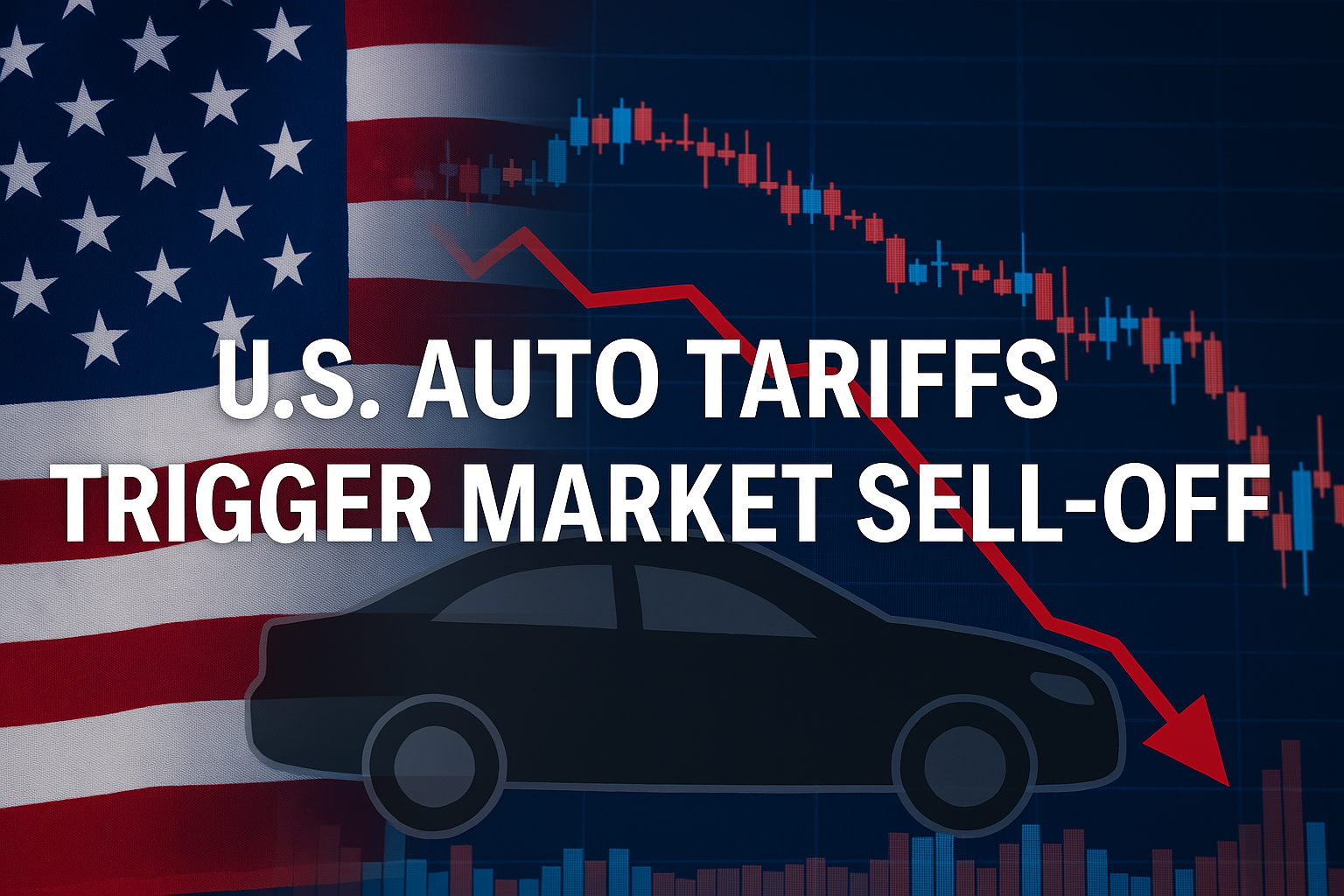Trump’s Auto Tariffs Shake Markets: A Warning Sign for Investors?
The U.S. stock market faced a sharp sell-off following President Donald Trump’s announcement of a 25% tariff on imported cars and light trucks. The move, aimed at protecting domestic manufacturing, triggered immediate market reactions, leading to declines in major indices and particularly affecting auto and tech stocks like Tesla and Nvidia. While vehicles assembled in Canada and Mexico using U.S. parts are exempt from the tariffs, the broader impact on global trade and investor sentiment remains uncertain.
Why This Matters for Investors
Trade policies have long been a driver of stock market volatility, and these new tariffs add another layer of uncertainty. Investors must assess how these tariffs impact key industries, particularly automakers, semiconductor manufacturers, and supply chain logistics firms.
The initial sell-off suggests that markets fear potential retaliatory measures from trading partners, which could escalate trade tensions and weigh on corporate earnings. Additionally, inflation concerns arise as higher import costs could be passed down to consumers, impacting consumer sentiment and spending.
Sector-Wide Impact: Winners and Losers
1. Automakers Face Margin Pressure
With tariffs increasing the cost of imported vehicles, companies heavily reliant on overseas manufacturing could see shrinking profit margins. While domestic automakers like Ford and General Motors may benefit from reduced competition, supply chain disruptions and higher component costs could offset gains.
2. Semiconductor Stocks Take a Hit
The automotive industry is a major consumer of semiconductors, and companies like Nvidia, which supplies chips for autonomous vehicles, experienced stock declines following the tariff announcement. If global automakers reduce production or shift supply chains, semiconductor firms could face slower demand growth.
3. Supply Chain and Logistics Disruptions
Companies involved in global shipping, such as freight carriers and auto-parts suppliers, could experience increased volatility. Tariffs may lead to shifts in production locations and trade routes, disrupting established supply chains.
Market Reaction and Analyst Insights
Financial analysts remain divided on the long-term impact of these tariffs. Some believe the move is a strategic negotiation tactic to bring trading partners back to the table, while others warn of prolonged economic disruptions.
Economists at Bloomberg suggest that if the tariffs remain in place, the auto industry could see cost increases of up to $45 billion annually, with potential job losses in export-dependent sectors. Meanwhile, a report from Investor’s Business Daily indicates that consumer prices for imported vehicles could rise by 10-15%, dampening demand.
Key Investment Insights
- Short-Term Volatility: Expect increased market fluctuations as investors react to trade policy updates and potential countermeasures from other nations.
- Sector Watch: Investors should monitor stocks in the auto, semiconductor, and supply chain sectors to gauge long-term effects.
- Portfolio Diversification: Given the uncertainty, diversifying into less trade-sensitive industries such as healthcare or domestic tech firms may provide a hedge against market swings.
A New Era of Trade Tensions?
The introduction of these auto tariffs signals a shift in trade policy that could have widespread economic implications. While some industries stand to gain, others face significant headwinds. Investors must remain vigilant, tracking legislative developments and corporate responses to navigate this evolving landscape.
For daily expert insights on trade policies and stock market trends, stay updated with MoneyNews.Today.





